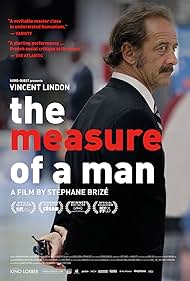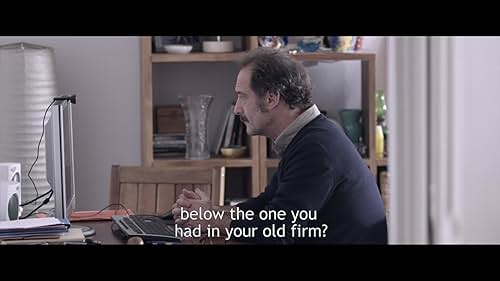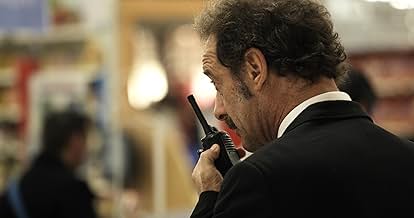LA LOI DU MARCHÉ's main quality is its honesty. Lindon, as the cdntral character, portrays the current Everyman, with the added burden of a handicapped child, which makes things that much more difficult. Lindon's performance is first class in its simplicity and honesty, but his wife, and his fellow workers also do very well in their smaller parts.
Direction is interesting, often using cinema verité moves, and it keeps targeting the sordid nature of human survival in the current world.
This is the problem we all face: we work to survive and, as we do, we compete with others also trying to survive, and we survive by ratting on them, and exposing the illegalities they commit. Given that no human is a saint, it is obvious that it is only a matter of time before you find somehing to send someone out of the "paradise" of employment. And once that has happened, the way back into the job market is well nigh impossible.
That is the law of the market, a law where human rights are easily trampled under the weight of economic and performance considerations, and where spying on, and suspecting, fellow human beings is bread and butter.
Lindon's character is looking hard for a job to meet his child's treatment's costs, and he has to accept duties that most of us would probably feel dismayed about. And so does he, and that is his moral dilemma by movie's end.
LA LOI DU MARCHÉ is not easy to watch, but its honesty makes it a must.























